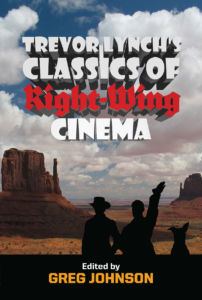The Bikeriders
There aren’t a lot of good movies these days. Jeff Nichols’ The Bikeriders is the best new film since Todd Field’s Tár, which came out in 2022. The Bikeriders is set in the Chicago area in the mid-to- late sixties. It tells the story of the Vandals Motorcycle Club (actually called the Outlaws). The movie is based on a book of photographs by Danny Lyon called The Bikeriders, as well as recordings he made while researching and shooting the book. Indeed, some of the script is simply copied verbatim from Lyon’s tapes.
The Bikeriders stars Tom Hardy as Vandals founder Johnny Davis, Austin Butler as his young protégé Benny Cross, and Jodie Comer as Benny’s wife Kathy. The whole cast is good, but Jodie Comer is truly excellent. She deserves a whole shelfful of awards for this film. Austin Butler is also memorable as Benny: Laconic, Stoic, pure Nordic cool. The script is highly intelligent, the pacing never lags, and the cinematography is perfect for a gritty character study, meaning that it is unobtrusive. You are not reminded that you are “watching a movie.” You are simply allowed to become immersed in a story.
Since I want you to see this film, I will try not to include any spoilers, but I can give you some central themes. The Bikeriders can be described as a love triangle between Benny, Kathy, and the Vandals, particularly the leader Johnny, who sees Benny as a son and wants him to take over leadership.

You can buy Trevor Lynch’s Classics of Right-Wing Cinema here.
But the film is more than just a domestic drama. The Vandals are a Männerbund: a bonded male group of adventurers. It is a movie about masculinity and femineity in their most primal forms. Beyond that, it is movie about history, in a very Hegelian sense. Indeed, the story of the Vandals compresses the beginning, unfolding, and ending of history into a few years.
Before history, there is family life and economic life. Both spring from and are encompassed by the necessities of satisfying basic animal needs. Johnny is a responsible man with a wife and two daughters. But he feels restless. Motorcycles are his pastime, but when he creates the Vandals, it rapidly becomes something more: a Männerbund with a code of chivalry. When Benny first meets Kathy, he takes her for a ride, then drops her off at home. Then he parks his bike and waits the whole night outside. It is straight from a courtly romance. Johnny also allows anyone to challenge him to a fight for leadership. Fists or knives.
The Vandals club also becomes political in the primal sense: a group with insiders arrayed against outsiders. It spawns imitators and rivals. When one of the Vandals is savagely beaten because he refuses to take off his gang colors in a bar in a neighboring town, the gang assembles in force. Johnny asks the bar owner for the identity of the assailants, cooly dispatches some men to break their legs, then orders the bar burned to the ground. As the gang members watch the bar go up in flames, they notice that the police and firetrucks are waiting at a distance, afraid to come closer. It is exhilarating. A moment of real power. Yes, it is a criminal act, but it is not venal. It is an act of vengeance for a member of the band.
But the seeds of the Vandals’ destruction have already been planted, partly by their virtues, partly by their vices. As the gang’s fame spreads, more people want to join. They attract increasingly creepy and sociopathic characters: juvenile delinquents, hardened criminals, Vietnam vets with post-traumatic stress disorder. From the start, the gang’s main pastime is getting drunk and smoking weed. Later, as the gang grows and the sixties deepen, tastes turn to heroin and meth. The turning point comes when the duel to the death over honor is replaced by simple, cowardly murder. Chivalry is dead, the gang becomes just a criminal operation, and the original members either die, leave, or get sucked into organized crime. History thus ends with a return to the rule of animal desire and economic necessity.
The Bikeriders has an almost entirely white cast. (There’s one Asian biker chick, but she didn’t feel forced in.) This is not, however, a shallow, sociological docudrama about working-class whites on motorcycles. That would bore me to tears. Instead, The Bikeriders is a genuinely tragic depiction of the fate of greatness of soul in a post-historical wasteland. It will move you deeply, because it is a genuinely deep film. Catch it while you can.

